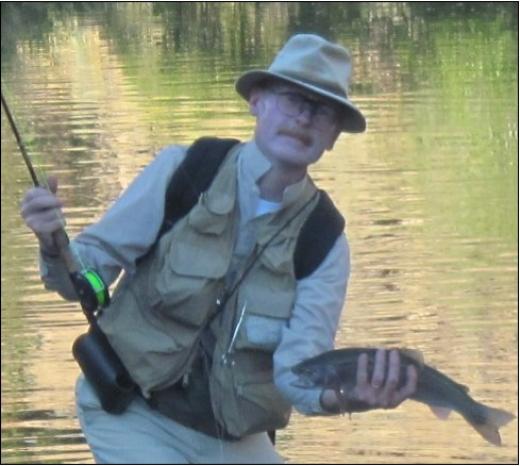President's Column
Water conditions are much improved this year after the extreme droughts of the past two years. The 2015 emergency closures by ODFW seem unlikely this summer. Since the low elevation snowpack melted early, it is still worth recalling that in parts of Oregon small streams may be subject to low and warm water. With good advice for any summer in the warmer climate, here is ODFW’s suggestion from July, 2015:
On days when temperatures soar, anglers can do their part to reduce the stress on fish by adopting the following measures:
- Fish early in the day when water temperatures are cooler.
- Use a thermometer to check water temperatures frequently. Stop fishing when temperatures exceed 70 degrees.
- Consider changing locations to high elevation lakes or shaded streams near headwaters. These places are often cooler.
- Use barbless hooks so you can release fish easily without harming them.
- Use the appropriate gear and land fish quickly. The longer the fight, the less likely the fish survive.
- Keep the fish in the water when you unhook it and cradle the fish upright until it revives enough to swim away.
- Use your judgement. If conditions where you want to fish seem especially severe (low, hot water), consider fishing somewhere else where water conditions are better.
Check the regulation update pages on the ODFW website before you head out to make sure temporary emergency regulations have not been put in place for the waters you want to fish.
We will take our traditional break from chapter meetings in July and August. When we return in September, our guest speaker will be Scott Richmond covering the history of the Deschutes River. It will be a fun evening.
Please plan to attend the TVTU picnic on July 13 at Cook Park. I hope to see you there.


